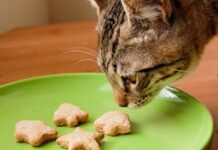Small business administration loans are provided by the U.S. government to help small businesses get started. These loans are designed to provide capital for new companies, expansion, and equipment purchases.
Small business administration loans can be a smart choice for you if you’re considering starting or growing a small business.
In this article, we’ll cover who can qualify for an SBA loan and what the requirements are.
Small Business Administration Loans

If you’re like most small business owners, you probably didn’t have a lot of money to start your business. You may have used your personal savings, or borrowed money from family and friends.
But what if you didn’t have to rely on your personal finances to get your business off the ground? The Small Business Administration (SBA) offers loans that can help you get the startup capital you need.
The SBA offers several loan programs, each with different eligibility requirements. The most common type of loan is the 7(a) loan, which is available to businesses of all sizes. To qualify for a 7(a) loan, businesses must have a good credit history and be able to demonstrate a need for the loan.
The SBA also offers the 504 loan program, which is available to businesses that are expanding or creating jobs. To qualify for a 504 loan, businesses must be able to show that the loan will create or save jobs.
The SBA also offers disaster relief loans to businesses that have been affected by natural disasters. To qualify for a disaster relief loan, businesses must be located in a declared disaster area and must have suffered physical damage to their business.
Who can get Small Business Administration Loans

A government organization called the Small Business Administration (SBA) offers financial support to start-ups and small businesses. One of the most popular programs offered by the SBA is their loan program.
Small firms and entrepreneurs who might not be eligible for conventional bank funding can apply for SBA loans. These loans are typically used for business start-ups, expansions, or to purchase equipment or real estate.
What is Small Business Administration (SBA)
The SBA was created in 1953 under President Eisenhower’s administration. Its purpose was to provide small businesses with loans at low interest rates.
In addition to providing Small Business Administration Loans, the SBA offers many services including counseling, business plan assistance, and training.
What is Startup Capital?
Startup capital refers to the initial amount of money that a company requires to get started. A startup may require anywhere between $10,000 and $100 million dollars.
Types of Small Business Administration Loans

There are different types of small business administration loans available to help with different needs. Each type of small business administration loan has its own advantages and disadvantages.
There are basically three types of loans offered by the Small Business Administration (SBA). These are:
- 504 loan
- Microloan
- 7(a) loan
A 504 loan is a type of low interest loan that is backed by the federal government. This type of loan is given to small businesses that have been in operation for at least two years and have annual revenues of less than $7 million.
A microloan is a smaller version of a 504 loan. It is only available to small businesses that have not been operating for at least two years.
A 7(a) loan is a special type of loan that is backed by both the federal government and private investors. This type of loan can be used for any business that has been in operation for at last five years and has annual revenues of less than $15 million.
Microloans are smaller than venture capital loans and are generally used to start-ups. Venture capital loans are larger and are used to fund established companies.
Other Key Topics of Small Business Administration Loans
Before you turn to a business lender, take a look at your personal finances. If you’ve got good credit and a decent amount of savings, there are likely better options for you than SBA loans available.
Unless you fall into one of the categories above, it’s unlikely that an SBA loan is the best way for you to finance your small business.
While the SBA loan is a good option for many startups and small businesses, it isn’t always the best choice. Before choosing an SBA loan, weigh your options to decide what works best for you.
1How to Apply for Small Business Administration Loans
To apply for a loan, you need to complete an application online. You should have a detailed business plan ready before applying for a loan.
Once you submit your application, you will receive a decision within 10 days. If approved, you will then be notified about the terms of the loan.
2Loan Application Process
When applying for a loan, you will first need to fill out a loan application. After submitting the application, you will receive an approval letter within 10 days. Then, you will need to sign a promissory note and pay back the loan over time.
3Interest Rates
Interest rates vary depending on the type of loan you choose. For example, if you choose a microloan, you will likely pay less than 1 percent interest. On the other hand, if you choose a venture capital loan, you will pay 2 to 5 percent interest.
4Small Business Administration Loans Repayment Terms
Repayment terms differ based on the type of loan. For example, if your loan is a microloan, repayment terms are set at 12 months. However, if your loan is venture capital, repayment terms are set for five years.
How much money Jeremy Hutchins makes on YouTube
Thoughts about Small Business Administration Loans
If you’re interested in how to start a small business, it may be because you’re eager to lead the life of your dreams—and being your own boss is one of the most rewarding parts of entrepreneurship.
But before you dive into creating a business plan and applying for loans, there are several other things to consider. For more information, take a look at our guide on how to start a small business.
The SBA’s loan repayment policies essentially work to the benefit of the borrower, though knowing each of the repayment policies in detail is important.
Knowing these details also allows you to anticipate when payments will be due, along with any penalties that might arise as a result of late payment.
As long as you know what to expect, though, loan repayment with the SBA doesn’t have to be a source of frustration or anxiety.
The SBA has various resources to help you throughout your business-related projects. Many are available online, which can make them convenient for most people to use.
In the end, if you’re truly passionate about your business and believe that it could one day be a successful venture, you should have sufficient reasons to convince the SBA of your future potential as well. Without that passion and commitment, there’s no way they would approve even a single loan application.



































